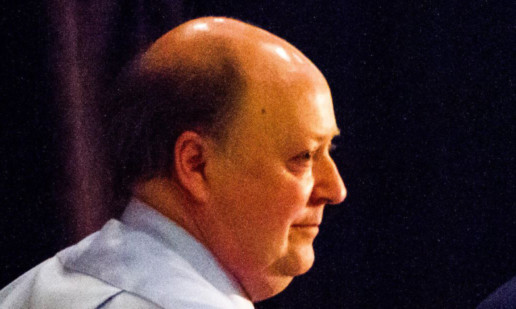Last year saw many beginnings but few ends for the agricultural industry, Borders farmer Nigel Miller said in his final address as president of NFU Scotland.
Calling for the momentum established over the last 12 months to continue, Mr Miller dubbed 2014 a “landmark year” for Scottish and UK politics, CAP reform and the land tenure debate.
However, he said that despite huge progress in these areas, these vital workstreams remain “far from completion”.
He warned that after all the excitement and anticipation of last year it could be all too easy for politics, post-Smith Commission, to “slide into stalemate”.
Drawing the recent collapse of the dairy and potato markets, as well as the potential for the future use of GM technologies, to the forefront of his final union council address, Mr Miller said: “If there is a positive to be taken, it has been in further highlighting to politicians and the public the imbalances that persist in our supply chains.
“That has already brought new powers and activity from the supermarket adjudicator,” he said.
“We need to look at stretching these a bit further so they reach back to the primary producer.
“In the 2006 crisis potatoes were retailing at £1.80 per kilo, of which the producer’s share was 17p. Today, potatoes are selling in supermarkets for £1.99 per kilo, of which the producer’s share is 7p,” he said.
“Tatties are retailing at almost £2,000 per tonne, and producers are getting £70 per tonne at the farm gate.
“Analysis of market share and power in the supply chain have some stark examples of primary producers being pushed into unsustainable positions.”
The unrelenting squeeze on margins, the loss of plant protection products, limits on nitrogen usage etc make it all the more important that producers have the most modern tools at their disposal, he said.
“In crops, our yields have plateaued.
“ We need to break the block on any discussion on using our scientific capability to work our way out of that plateau,” he said.
“At the James Hutton Institute we have world-leading expertise in potatoes and soft fruit, but it has the potential to be Europe’s centre for barley.”
However, Mr Miller added, the block on crop development is undermining the scientific community.
“We need to get behind the headlines of GM and find a way forward.
“Having a science and ethics body oversee plant breeding could allow precision techniques to accelerate what could be achieved through conventional breeding alone.
“If that body was to be established in Scotland, then the intellectual property could stay with the research body rather than corporate hands.”
Urging those elected to office to ensure these matters continue to be taken forward, Mr Miller said: “The future for our industry is bright. I remain very positive about our prospects.
“But there remains a great deal of work to be done. Last year was a landmark year in many respects but the reality is, nothing is finished.”
Marking his last day in office, he added: “I hope that the collaborative and stakeholder approach that the union has been instrumental in developing can be further developed in 2015 and beyond for the common good of Scottish food and farming.”
